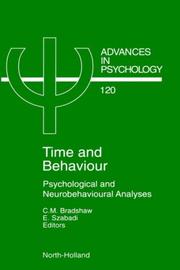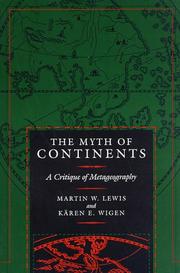| Listing 1 - 2 of 2 |
Sort by
|

ISBN: 9780444824493 0444824499 9780080543017 0080543014 9786611057473 1281057479 Year: 1997 Publisher: New York Elsevier
Abstract | Keywords | Export | Availability | Bookmark
 Loading...
Loading...Choose an application
- Reference Manager
- EndNote
- RefWorks (Direct export to RefWorks)
That time is both a dimension of behaviour and a ubiquitous controlling variable in the lives of all living things has been well recognized for many years. The last decade has seen a burgeoning of interest in the quantitative analysis of timing behaviour, and progress during the last five or six years has been particularly impressive, with the publication of several major new theoretical contributions. There has also been considerable progress in behavioural methodology during the past decade. In the area of reinforcement schedules, for example, the venerable interresponse-time schedu
Animal psychology and neurophysiology --- Time --- Time perception. --- Time perception in animals. --- Animal psychology --- Chronometry, Mental --- Duration, Intuition of --- Intuition of duration --- Mental chronometry --- Time, Cognition of --- Time estimation --- Orientation (Psychology) --- Perception --- Psychological aspects.

ISBN: 1280080256 9786613520241 0520918592 9780520918597 0520207424 9780520207424 0520207432 9780520207431 Year: 1997 Publisher: Berkeley : University of California Press,
Abstract | Keywords | Export | Availability | Bookmark
 Loading...
Loading...Choose an application
- Reference Manager
- EndNote
- RefWorks (Direct export to RefWorks)
In this thoughtful and engaging critique, geographer Martin W. Lewis and historian Kären Wigen reexamine the basic geographical divisions we take for granted, and challenge the unconscious spatial frameworks that govern the way we perceive the world. Arguing that notions of East vs. West, First World vs. Third World, and even the sevenfold continental system are simplistic and misconceived, the authors trace the history of such misconceptions. Their up-to-the-minute study reflects both on the global scale and its relation to the specific continents of Europe, Asia, and Africa-actually part of one contiguous landmass.The Myth of Continents sheds new light on how our metageographical assumptions grew out of cultural concepts: how the first continental divisions developed from classical times; how the Urals became the division between the so-called continents of Europe and Asia; how countries like Pakistan and Afghanistan recently shifted macroregions in the general consciousness.This extremely readable and thought-provoking analysis also explores the ways that new economic regions, the end of the cold war, and the proliferation of communication technologies change our understanding of the world. It stimulates thinking about the role of large-scale spatial constructs as driving forces behind particular worldviews and encourages everyone to take a more thoughtful, geographically informed approach to the task of describing and interpreting the human diversity of the planet.
Geographical perception. --- Geopolitics. --- World politics --- Environmental perception --- Maps, Mental --- Mental maps --- Perceptual cartography --- Perceptual maps --- Perception --- Orientation (Psychology) --- Space perception --- Geography --- Perception géographique --- Géographie --- History --- Histoire --- Geodesy. Cartography --- History as a science --- Geografie --- Sociale en economische geografie --- Algemeen. --- Geographical perception --- academic. --- afghanistan. --- analysis. --- asia. --- cold war. --- continental divide. --- continents. --- criticism. --- critique. --- economic. --- economy. --- europe. --- first world. --- geographical. --- geography. --- global. --- government. --- historian. --- historical. --- international issues. --- international. --- law and order. --- macroregions. --- misconception. --- myth. --- pakistan. --- philosophy. --- regional. --- scholarly. --- third world. --- world issues.
| Listing 1 - 2 of 2 |
Sort by
|

 Search
Search Feedback
Feedback About
About Help
Help News
News